Michael Lin: Seeking what is important
Updated: 2014-09-19 06:58
By LIU CHANG and CAI CHUNYING in Washington(China Daily USA)
|
||||||||
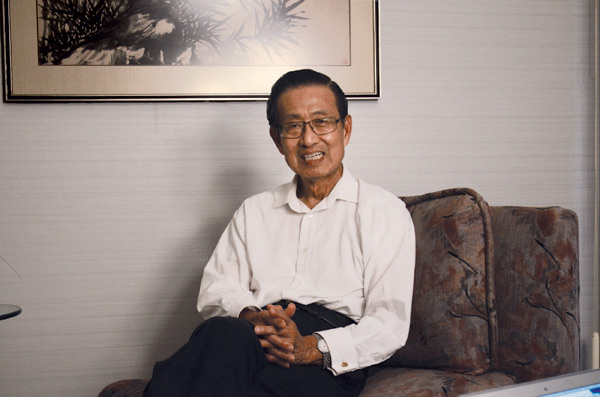 |
|
Michael Lin, former national president and executive director of the Organization of Chinese Americans, advises his grandsons to "find something bigger than yourself". [CAI CHUNYING / China Daily] |
Michael Lin celebrated his 76th birthday this week. The golden piece of advice he said he would pass down to his two young grandsons is to find something important in life.
And what might that important "something" be? "Find it yourself," he said, something "larger than yourself", just as he has been striving to do on his journey to becoming a well-acclaimed biochemist and a revered Chinese community leader.
It all started with Lin arriving in the US in 1962 after finishing his bachelor's degree in chemistry in Taiwan. Born in Xiamen, a scenic southeast coastal city in the Chinese mainland, Lin had moved to the island with his family at age 7.
Living on a full scholarship as a biochemistry doctoral candidate at the Medical College of Georgia, Lin was the only Asian student in his class. He still vividly recalls the bitter reality of segregation.
"I had a very good friend in my lab who was black," Lin told China Daily. "It was hard to see that he had to go to separate bathrooms specifically marked for 'Colored' only."

It was Lin's first taste of discrimination in a society. Although he was busy managing his studies in a foreign language and barely had time to think about other things, the idea of "why certain groups get discriminated against" gradually took root in his mind and would affect his community involvement later.
After four years of hard work, Lin faced his first major decision in his life in a foreign land: either go teach at a small college and "become a big shot there" or go to a top university and be part of a promising team.
Lin chose to be a small "potato" first at a top place, becoming a postdoctoral fellow at the Rockefeller University in New York in 1966. Six years later, his mentors, Stanford Moore and William H. Stein, won the Nobel Prize in Chemistry for a breakthrough in enzyme research. In their Nobel lecture, they cited Lin's contribution to the award.
With that distinction, Lin could have gone to any major university and become a faculty member. Instead, he joined the National Institutes of Health (NIH), the primary federal agency devoted to biomedical and health-related research, as a research fellow in 1971.
"The NIH is a major funding agency so you don't have the stress of fighting for grants therefore can concentrate on research and have more of an impact," said Lin, who stayed on for the next 35 years, advancing in positions to senior investigator, group leader and finally program director nurturing cutting-edge research in cardiovascular studies.
Lin's work contributed to another Nobel Prize awarded to his lab chief Martin Rodbell in 1994 for shedding light on the role of certain proteins in signal transduction in cells.
With his professional life largely in shape, Lin had more time and resources to contribute to other things that he had long deemed as important and larger than himself — Chinese community and the common good.
Lin joined the Organization of Chinese Americans (OCA), a leading national organization devoted to advocating rights for the community nationwide and encouraging active participation in the American political process, in the late 1980s. He first served as a board member, then as president of its Washington DC chapter and became national president in 1995.
Leading OCA for the next four years, Lin reached out to other Asian-American communities and jointly launched the National Voter Registration Campaign, cosponsored by 18 Asian Pacific Islander American organizations. The campaign later evolved into a separate organization, APIA Vote, mobilizing the whole Asian-American population in political elections.
"You have to survive as a bigger community while seeing the differences but finding a common ground," said Lin, whose personal style of being consummately genuine and devoted has made him the ultimate consensus builder.
Right after fulfilling his OCA commitment, Lin brought together the group of Asian American leaders he has come to trust and founded the Asian American Political Alliance (AAPA) in 1999 to encourage the Asian American community in Montgomery County, Maryland, where he lives, to be more visible politically.
"We are called a minority, so it is up to us to bring our issues to the forefront; if we don't speak up, no one is going to pay attention to us," said Lin, who also served as the chair of the Governor's Commission on Asian Pacific American Affairs in Maryland from 1998 through 2002.
Lin was invited back to OCA in 2006 to be its national executive director to lead day-to-day operations for the next two years. He gave up his job at NIH, so he could devote all his energy and time to OCA when it was needed most.
Then came the hard-fought battle of the famous 1882 Project which Lin chaired. It was an initiative to demand an apology from the US Congress for a series of anti-Chinese laws passed between 1870 and 1904, the most representative being the Chinese Exclusion Act of 1882.
With the strong determination of a steering committee consisting of leaders from several key Chinese-American organizations and the Japanese American Citizens League, as well as the leadership of Chinese-American Congresswomen Judy Chu and fellow sympathetic congressional leaders, the initiative finally came to fruition in 2011 and 2012 with the passage of resolutions in the Senate and the House acknowledging the injustice of those discriminatory laws.
Lin received the Roscoe R. Nix Distinguished Community Leadership Award earlier this year, an award described as Montgomery County's equivalent of the Presidential Medal of Freedom, the nation's highest civilian award. Lin was praised for representing "the American ideal of the consummate professional who focuses his skills on serving the greater community good".
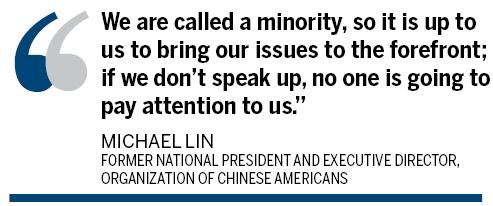
It seems nothing can slow down Lin. His latest project is serving as a member of the advisory board of KID Museum, a private-public initiative to serve children and families in the greater Washington area by providing interactive experiences in science, technology, engineering and art with an exploration of world cultures and global citizenship.
"Just imagine if we can incorporate a piece of Chinese culture and identity of Chinese Americans into this museum, kids visiting this place can have a lasting impression of who we are," said Lin, who also was a member of the board of trustees at Montgomery College for 12 years and served as its chair from 2009 to 2011.
"We Chinese Americans as immigrants are often too busy at work and raising our family, and don't have time for anything else," he said. "But we have to find time to be a member of the community since there are other things in life equally important."
Contact the writers at changliu@chinadailyusa.com and charlenecai@chinadailyusa.com

 Daredevil dancer conquers mountain
Daredevil dancer conquers mountain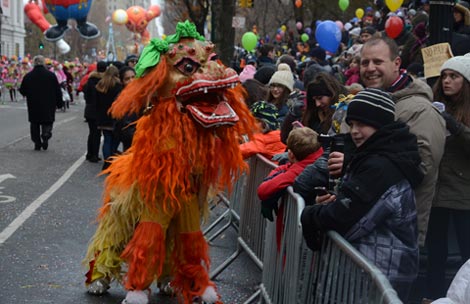
 Chinese float gives joy at Macy's parade
Chinese float gives joy at Macy's parade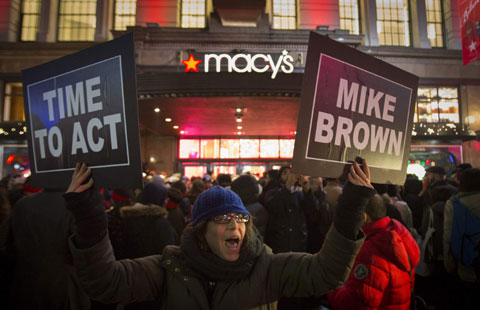
 Calm comes to troubled Ferguson
Calm comes to troubled Ferguson
 6 things you should know about Black Friday
6 things you should know about Black Friday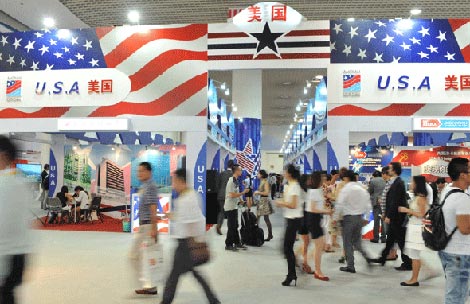
 Visa change may boost tourism to the US
Visa change may boost tourism to the US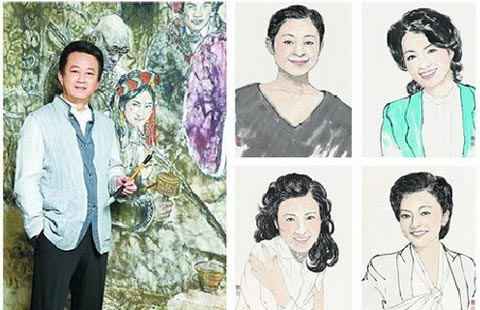
 China's celebrity painters
China's celebrity painters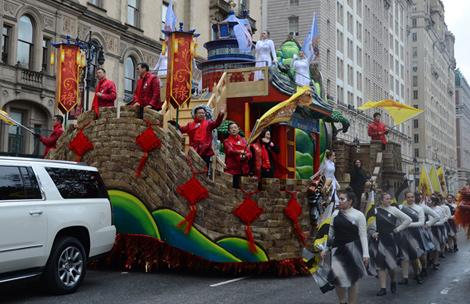
 Beauty of Beijing float making debut in Macy's parade
Beauty of Beijing float making debut in Macy's parade
 Rescue dogs show skills in NW China
Rescue dogs show skills in NW China
Most Viewed
Editor's Picks

|

|

|

|
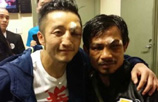
|

|
Today's Top News
China, US fight terror on the Internet
How to give is focus of philanthropy forum
China, US diverge on approaches to nuclear energy
China's local govt debt in spotlight
Macy's looks to appeal to more Chinese customers
Clearer view of Africa called for
Cupertino, California council is majority Asian
BMO Global Asset Management Launches ETFs in Hong Kong
US Weekly

|

|








